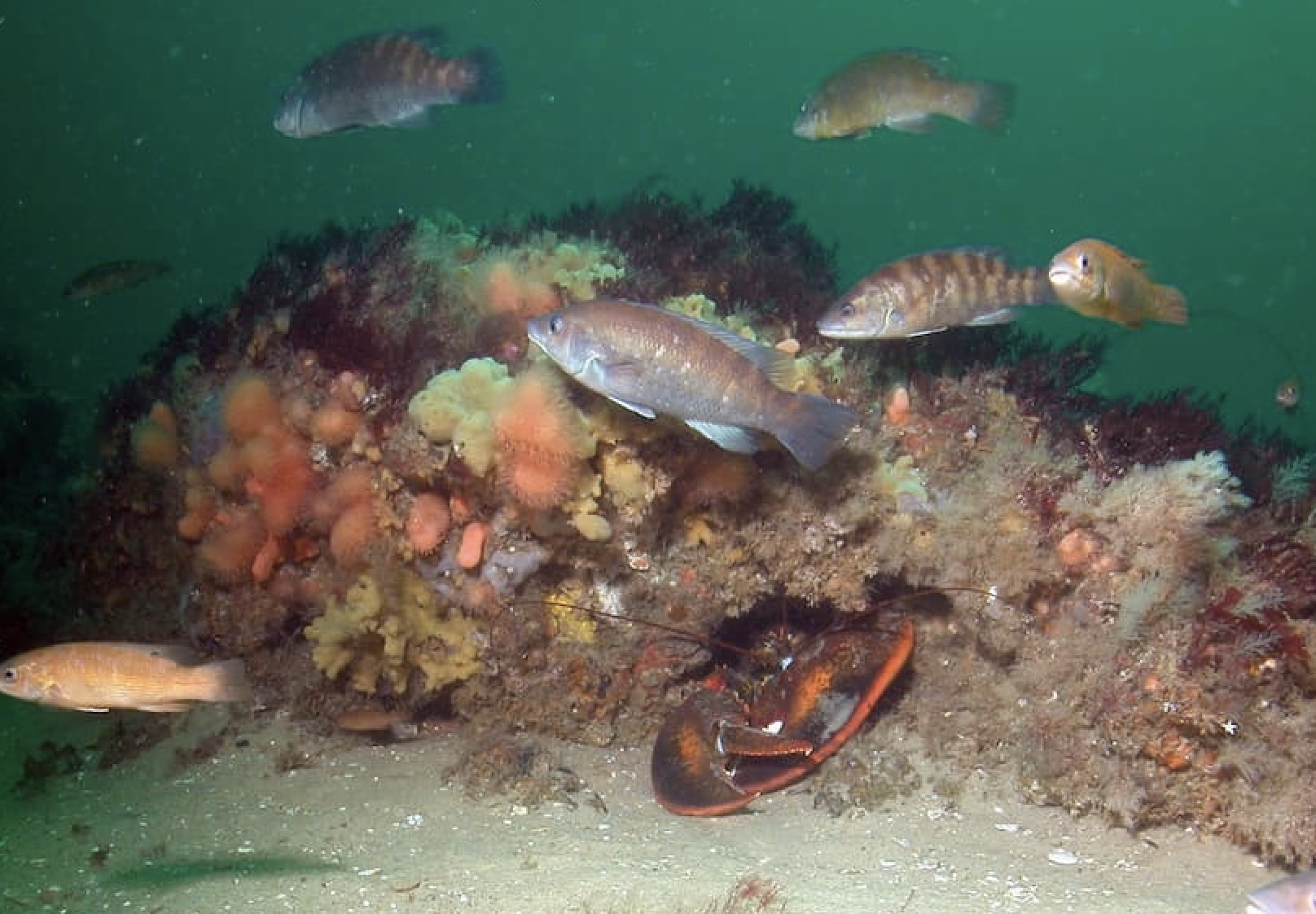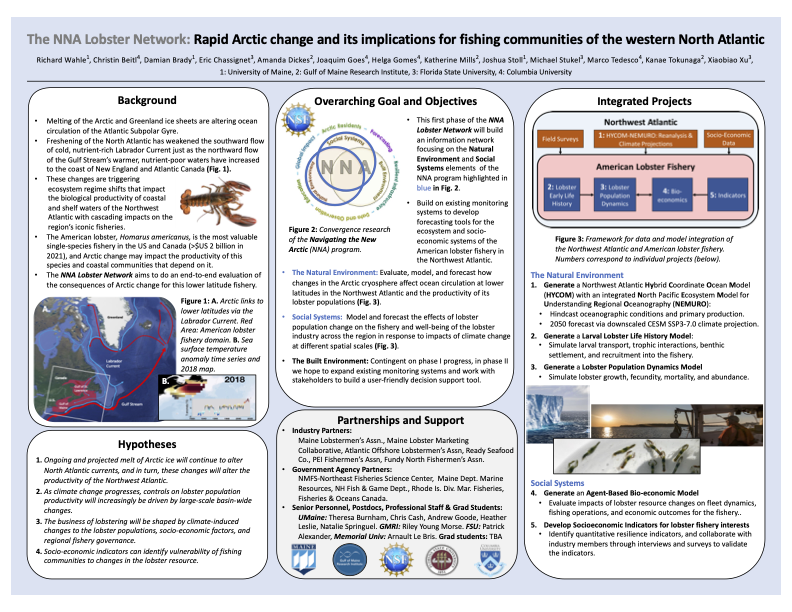NNA Project Background
Rapid Arctic Change and its implications for fisheries and fishing communities of the western North Atlantic

This 3-year NSF-funded effort was initially conceptualized in 2021. as an international. multi-institution, interdisciplinary research project focused on the influence of Arctic change on the life cycle of the American lobster (Homarus americanus), and the cross-border economic region it sustains.
This project addresses the impact of Arctic warming on North Atlantic ecosystems, focusing on the American lobster fishery in New England and Atlantic Canada. Using models and field data, it aims to understand how changes in ocean circulation affect lobster populations and, in turn, the fishing communities that rely on them. The project also explores how social and economic factors influence community resilience to climate change. Key outcomes include an integrated analysis of Arctic impacts, scenario forecasting, strengthened US-Canada collaborations, and educational opportunities for students and early-career researchers. Download here.
The “NNA Collaboratory” project studies how Arctic warming affects North Atlantic ecosystems, particularly the American lobster fishery, vital to New England and Atlantic Canada. This four-year effort focuses on creating tools to help communities adapt to environmental changes, including a decision support system and models to predict fishery productivity under different climate scenarios. It also assesses the resilience of fishery management institutions. The project relies on collaboration among U.S. and Canadian scientists, government agencies, and industry stakeholders to foster sustainable solutions and educational initiatives. Download here.
The “NNA Lobster Network” project explores how Arctic warming affects the American lobster fishery, focusing on New England and Atlantic Canada. The project uses advanced modeling to predict changes in ocean circulation and ecosystem impacts due to melting Arctic ice, with particular attention to lobster populations. It also examines the socio-economic resilience of coastal communities dependent on lobstering, assessing how various governance systems can adapt to climate-driven challenges. This collaborative effort aims to build cross-border partnerships, foster education, and develop future strategies to support sustainable fisheries in the face of climate change. Download here.
This document outlines collaboration guidelines for researchers and external partners involved in the NNA Lobster Network project, focusing on Arctic-induced impacts on the North Atlantic lobster fishery. It establishes a structure for roles and responsibilities, with distinct roles for PIs, co-PIs, administrative staff, and external partners, who support the project without direct funding. The document promotes principles of convergence research, open science, and inclusivity, with clear policies for data sharing, publication, conflict resolution, and stakeholder engagement. It also includes funding guidelines for project-related travel and emphasizes a commitment to ethical conduct, fostering a collaborative environment for all team members. Download here.

